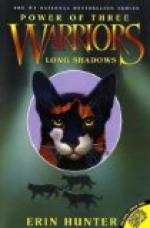Charming Billy’s cupped hands hid his mouth, but his eyes laughed. “Roads ain’t so plenty around here that you’ve any call to take one that don’t belong to yuh,” he reproved, when his cigarette was going well. “If Hardup’s the place yuh started from, and if they headed yah right when they turned yuh loose, you’ve covered about eighteen miles and bent ’em into a beautiful quarter-circle—and how yuh ever went and done it undeliberate gets me. You are now seven miles from Hardup and sixteen miles, more or less, from Murton’s.” He stopped to watch the effect of his information.
Alexander P. Dill was a long man—an exceedingly long man, as Billy had already observed—and now he drooped so that he reminded Billy of shutting up a telescope. His mouth drooped, also, like that of a disappointed child, and his eyes took to themselves more melancholy. “I must have taken the wrong road,” he repeated ineffectually.
“Yes,” Billy agreed gravely, “I guess yuh must of; it does kinda look that way.” There was no reason why he should feel anything more than a passing amusement at this wandering length of humanity, but Billy felt an unaccountable stirring of pity and a feeling of indulgent responsibility for the man.
“Could you—direct me to the right road?”
“Well, I reckon I could,” Billy told him doubtfully, “but it would be quite a contract under the circumstances. Anyway, your cayuse is too near played; yuh better cut out your visit this time and come along back to town with me. You’re liable to do a lot more wandering around till yuh find yourself plumb afoot.” He did not know that he came near using the tone one takes toward a lost child.
“Perhaps, seeing I’ve come out of my way, I might as well,” Mr. Dill decided hesitatingly. “That is, if you don’t mind.”
“Oh, I don’t mind at all,” Charming Billy assured him airily. “Uh course, I own this trail, and the less it’s tracked up right now in its present state the better, but you’re welcome to use it—if you’re particular to trod soft and don’t step in the middle.”
Alexander P. Dill looked at him uncertainly, as if his sense of humor were weak and not to be trusted off-hand; turned his tired horse awkwardly in a way that betrayed an unfamiliarity with “neck-reining,” and began to retrace his steps beside Charming Billy. His stirrups were too short, so that his knees were drawn up uncomfortably, and Billy, glancing sidelong down at them, wondered how the man could ride like that.
“You wasn’t raised right around here, I reckon,” Billy began amiably, when they were well under way.
“No—oh, no. I am from Michigan. I only came out West two weeks ago. I—I’m thinking some of raising wild cattle for the Eastern markets.” Alexander P. Dill still had the wistful look in his eyes, which were unenthusiastically blue—just enough of the blue to make their color definite.
Charming Billy came near laughing, but some impulse kept him quiet-lipped and made his voice merely friendly. “Yes—this is a pretty good place for that business,” he observed quite seriously. “A lot uh people are doing that same thing.”




